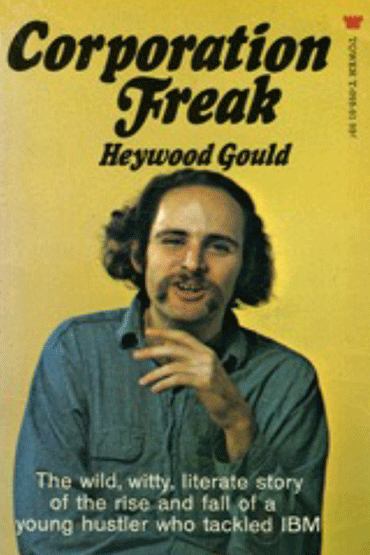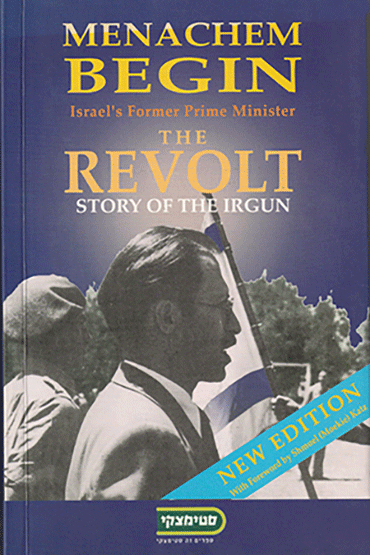Description
“Drafted, A Memoir of the ’60’s,” was nominated for an American Library Achievement Award.
Description
It’s 1966, and young Heywood Gould has his dream job. He is a reporter at the ultra liberal New York Post, alongside young writers like Nora Ephron, Pete Hamill and Anthony Scaduto.
It’s one of the most consequential moments in American history. Gould chases stories about the civil rights struggle, the anti-war movement, riots and rat infestations, and World’s Fair scandals. He covers everything from toy shows to murder trials.
Then he gets that fateful letter that begins, “Greetings.” After five years of dodging, Uncle Sam has caught up with him. He’s been caught in the Vietnam draft.
In this comic memoir of his early life, screenwriter, director and novelist Gould cuts back and forth between vivid scenes of childhood as early as age 2, and coming of age in New York City in the ‘60’s. Fighting anti-Semitic bullies in the neighborhood. Hustling the chess hustlers in Washington Square Park, collecting corpses for a Brooklyn funeral home. Dropping acid in Greenwich Village and dropping out of college for a year of sleazy encounters and one bittersweet love affair in the down and out world of left bank Paris.
He tells of the strategies he employed as his draft day approached. Shrink’s notes, urine switches, bogus arrests, arranged marriages, freakouts at the physical—all to no avail.
Possessed of uncanny recall for details, and unparalleled ear for dialogue, and disarming candor about his foibles, young Heywood is great company. Readers will be treated to a ride to another era, not so terribly long ago.
Excerpt
“…BEFORE THE PEACENIKS SHOW UP…”
New York, February 4, 1966
Life couldn’t be better.
I’m a twenty-three-year-old Brooklyn boy working at my dream job—reporter for the New York Post.
I’m wealthy on $95 a week. Rent, $53 a month, gas, 24 cents a gallon, subway,15 cents. A mountain of pork fried rice goes for $1.80 in Chinatown. Veal parmigiana hero, full loaf, and a large cream soda, $2.75 at Whitey’s Pizzeria. Movies are a buck, Rheingold on tap, a quarter… I’m training to be a heavy drinker.
Now all that is about to change. After five years of student deferments, doctors’ notes, psychiatric exemptions, marriage proposals, offers of asylum from Canada and Sweden, conversion to Quakerism and a plot to blow up the draft board and become a folk hero, I’ve run out of options. I’m about to be inducted into the United States Army.
8:30 a.m. I’m outside Selective Service Headquarters, 39 Whitehall Street, downtown Manhattan, across from Battery Park. A Revolutionary War cannon points toward the Hudson, a rusty remnant of the battery that protected the harbor from British warships. A chill breeze whistles. A hundred anxious boys wait for the door to open. Some have sandwiches packed by their mothers. Extra socks and underwear from their dads. My father gave me a pair of scuffs. “I’m sure they haven’t changed the showers since I was in,” he said, “Better wear these so you won’t get a splinter or pick up some toe crud.”
The building is besieged every day by anti-war demonstrators. Broken pickets are scattered on the sidewalk. Scraps of ripped signs, tatters of a torn American flag. Two sailors on their knees scrub at a spot on the sidewalk where someone painted “HELL NO WE WON’T GO!” in red, white and blue. Across the street the Bowling Green subway plaza is covered with black paint and graffiti. There is a thick chain across the station entrance. Sanitation guys are hosing down the street and sweeping up the broken bottles, food bags, newspapers and the discarded clothes of the people who stripped naked in the freezing rain to protest the war.
On the ground a pamphlet from the War Resister’s League, “STOP THE WAR”. An article by “Anonymous” offers hints on how to beat the draft. By now I’m enough of an expert to know that “Anonymous” is either misinformed or an FBI agent. Drink a gallon of Coke the night before your physical, it says, to turn your urine brown and raise its sugar content. I know people who did it and nothing happened except they puked on the bus to Fort Dix. Smoke hundreds of Camels, dipped in ink. Might cause black spots to form on your lungs, might even kill you but won’t keep you out of the Army because they don’t give chest X-rays at the physicals. Eat a special “diarrhea menu” of Heinz beans, Hershey bars, peanut butter and cherries to cause constant bowel movements that will eventually produce the hemorrhoids that guarantee a 4F. I have friends who eat that way every day and they’re in great shape. The only thing left for me is an act of civil disobedience. Like Gandhi and Martin Luther King Jr. I’ve heard stories of kids who refused to get on the bus. Do I have the guts to do that? My father was a decorated combat engineer during World War II. Every male and some females in my family served in World War II. They felt a patriotic obligation. Will I be betraying them by defying the country they love? My father felt he had to prove his courage against the accusation that Jews were cowards and slackers. He speaks gratefully of officers and friends who defended him against anti-semites in the ranks. Will he worry that I’m acting like a coward and a slacker?
Two Shore Patrol cops stand guard at the door checking draft cards against a list. Another shouts, “Get in and form a line against the wall.”
A Marine Sergeant gives me a funny look. I’m scruffy, bloodshot, with nicotine fingers, and at least four years on everyone else. There’s another older guy, gray ponytail, fatigue jacket. He ducks behind a fat kid as the Sergeant passes.
Excited talk in the ranks.
“They make you do fifty pushups. I can’t even do two.”
“My cousin got meningitis and almost died…”
One kid volunteered for the paratroops. “You get special treatment,” he says. “Plus sixteen dollars jump pay.”
Ponytail pops up. “You’re too short for the program.” He’s got a military tattoo on his forearm. Southern accent, booze reeking off his clothes.
Another kid and his friend are going on the “buddy” plan so they get to serve together.
“That’s just a come on,” Ponytail says. “They’ll put you where they need you.”
“But they signed a contract…”
“And you signed your rights away. You’re under the Uniformed Military Code of Justice, brother, which means they can do anything they want to you and you can’t do squat about it…”
Ponytail turns to the wall as another Marine walks by. “Have your papers ready for inspection, Gentlemen…” Then turns back.
“Don’t let ‘em shame you into bein’ a good soldier, brothers,” he says. “Get yourself two left feet in the drills. Do pussy pushups. Fire wild over the targets. Don’t scream “Kill!” in bayonet practice. Don’t fall on the dummy grenade. Run away when the DI drops it. Report to the infirmary… Sprained ankles, blisters. Slam the butt of your rifle on your foot. That’ll raise a bruise and put you out of commission. They have to keep you for at least a day ‘cause they don’t wanna pay disability. They’ll recycle you through Basic. They count on your pride. Don’t improve. Stay outta the infantry. Don’t let them put your ass in the grass.”
An Army Sergeant comes running down the hall followed by three MPs. He stops in front of Ponytail, neck veins bulging, “You back again?”
“It’s a public building,” Ponytail says. “I have a right to express my views.”
The Sergeant goes eyeball to eyeball with him, fists clenched white at his side. “Remember what I told you yesterday?”
Ponytail glares back. “You can’t arrest me, I’m a civilian… If you want to eject me you’ll have to get Federal Marshals.”
The Sergeant hits Ponytail in the chin with the heel of his hand and cracks his head against the wall. Grabs his wrist and tries to twist his arm behind his back, but Ponytail breaks free and stumbles away, shouting, “I am an honorably discharged veteran of the United States Army…”
An MP puts him in a headlock. The other two grab his arms. They carry him kicking and screaming down the corridor. “They have your bodies, don’t give them your minds,” he shouts. “Resist, brothers. Don’t die for their money…”
Then he’s gone behind a slamming door. We wait in an uneasy silence as the same Sergeant comes back, jamming his shirt back down his pants. “Gentlemen, please take seats in the auditorium. We wanna get you squared away and on the buses before the peaceniks show up.”
About The Author
Born in the Bronx and raised in Brooklyn, Heywood Gould got his start as reporter for the NY Post. Later he financed years of rejection with the usual colorful jobs – cabdriver, mortician’s assistant, tending bar and writing screenplays.
Gould is the author of eleven novels, among them Cocktail, Fort Apache, The Bronx, Double Bang, Serial Killer’s Daughter. Leading Lady and Greenlight for Murder were Hammett Award finalists.
He has written nine movies, including Cocktail, Fort Apache, the Bronx, The Boys From Brazil, Rolling Thunder and Streets of Gold. Gould has also directed four features, One Good Cop, starring Michael Keaton, Trial By Jury with William Hurt, Mistrial starring Bill Pullman and Double Bang with William Baldwin.

Heywood Gould







